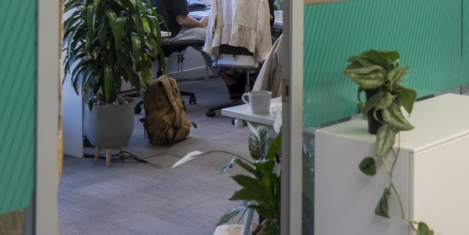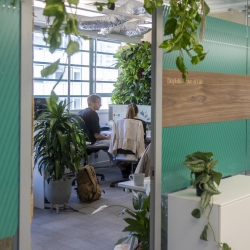To provide the best experiences, we use technologies like cookies to store and/or access device information. Consenting to these technologies will allow us to process data such as browsing behaviour or unique IDs on this site. Not consenting or withdrawing consent, may adversely affect certain features and functions.
The technical storage or access is strictly necessary for the legitimate purpose of enabling the use of a specific service explicitly requested by the subscriber or user, or for the sole purpose of carrying out the transmission of a communication over an electronic communications network.
The technical storage or access is necessary for the legitimate purpose of storing preferences that are not requested by the subscriber or user.
The technical storage or access that is used exclusively for statistical purposes.
The technical storage or access that is used exclusively for anonymous statistical purposes. Without a subpoena, voluntary compliance on the part of your Internet Service Provider, or additional records from a third party, information stored or retrieved for this purpose alone cannot usually be used to identify you.
The technical storage or access is required to create user profiles to send advertising, or to track the user on a website or across several websites for similar marketing purposes.
 The new Slack State of Work Report [registration] claims that companies are missing opportunities to unlock new levels of employee productivity with new technology, hybrid working, and talent development. The report, based on a global survey of more than 18,000 desk workers – including 2,000 in the UK, found only 23 percent of companies are investing in technology to improve productivity and efficiency (21 percent in the UK), and just 27 percent of companies are using AI tools to help do so. (more…)
The new Slack State of Work Report [registration] claims that companies are missing opportunities to unlock new levels of employee productivity with new technology, hybrid working, and talent development. The report, based on a global survey of more than 18,000 desk workers – including 2,000 in the UK, found only 23 percent of companies are investing in technology to improve productivity and efficiency (21 percent in the UK), and just 27 percent of companies are using AI tools to help do so. (more…)
















 Pay and benefits are no longer the only critical factors in deciding where to work, with a majority citing their employers’ values (80 percent) and commitment to the environment (76 percent) and social equality (75 percent) as key criteria, claims a survey commissioned by advocate and author
Pay and benefits are no longer the only critical factors in deciding where to work, with a majority citing their employers’ values (80 percent) and commitment to the environment (76 percent) and social equality (75 percent) as key criteria, claims a survey commissioned by advocate and author 
















May 24, 2023
Hybrid working, work from anywhere and the evolution of the Third Place
by Chelsea Perino • Comment, Property, Workplace design